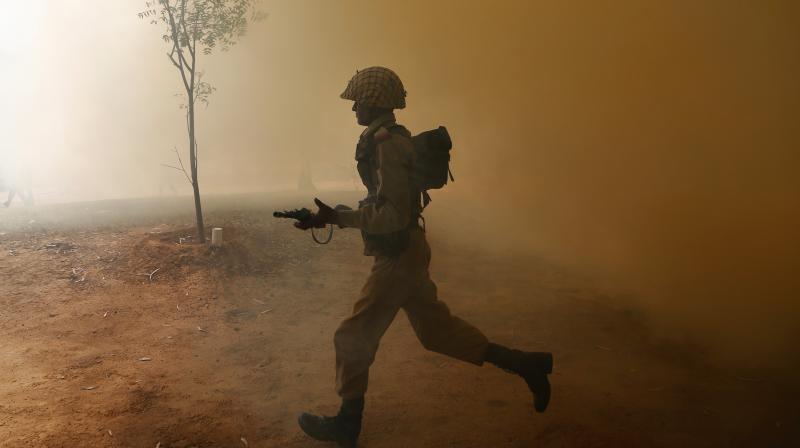DC Debate: Succession woes

It sets a dangerous precedent
Narendra Sisodia
In appointing an Army Chief by superseding the two seniormost and competent Army commanders, the government could set a dangerous precedent. The armed forces are among the handful of apolitical institutions. Cherry-picking from amongst the top commanders for appointment of a chief can set in motion a process of politicisation of our armed forces, which must remain neutral.
The argument trotted out that the appointment of the Chief of Army Staff is the outcome of a well-considered “deep-selection” process does not wash. At the Army commander’s level, having gone through a rigorous churning process and fierce competition, each one of them is competent.
Supersession in the armed forces will also lead to politicking at the top level and demoralisation among the ranks. Whatever the professional competence of the selected COAS, due to a widespread perception of his proximity to the political leadership, his image, as a non-partisan officer, as well as credibility will suffer. This, in turn, will affect his authority and effectiveness.
In offering justification for the recent appointment of the COAS, the incumbent’s “nuts and bolts” experience in counter-insurgency has been cited. Nobody has questioned the calibre and experience of the new COAS. However, his two superseded seniors are reported to be equally competent. In the circumstances, the supersession has led to unhealthy speculation and rumour-mongering. Many officers are convinced that the appointment was motivated by extraneous considerations. Some even allege regional parochialism in his selection. This could lead to divisiveness in the armed forces’ officer cadre, adversely impacting its efficiency.
Explaining top-level appointments in terms of a set of criteria would not resolve the problems resulting from supersessions. No set of criteria, like counter-insurgency experience, may be relevant for all times. Can it, for instance, be argued that the northern border is unimportant or modernisation can be given a lower priority?
The security scenario is always dynamic; in fact, it could change even during a single chief’s tenure. Hence, the appointments at the highest level should take into consideration the overall experience and calibre of the officer, rather than a particular aspect of it which may not always remain relevant. While there may be some limitation in the seniority principle, it is a sound and time-honoured convention, which should not be trifled with.
The writer is a former secretary in the defence ministry and later director-general of the Institute for Defence Studies and Analyses.
Govt has the right to decide
C.S. Sandhu
Supersession seems to be a much-talked-about word today, specially by people who do not understand the services’ (Army, Navy and Air Force) ethos. The government is well within its rights to decide who should be at the helm of its most potent and reliable force.
Such decisions are not taken at the whim of ethical and country cousin syndrome, but seriously deliberated upon and pros and cons taken into account, which having been in the Army for 36 long years, I can understand. Emotionally I would go with a large number of writers saying that seniority should have been followed, but you don’t run a nation on emotions, one has to be practical and look at the needs of the time.
There have been instances of such supersessions going wrong, with the 1962 war and Bluestar as examples, but it may well have happened without supersessions too. Let me highlight the issue of supersession in the Army, it starts off at the rank of colonel because the pyramid is too steep, so other than the COAS all others face the prodigal sword all the time.
For once, if we only follow the principle of seniority, then merit is to be given the go-by as such a cadet who passed out ahead of you will always be at an advantage.
The thumb rule being that you start with a clean slate after getting a commission, and prove your worth as a competent leader.
The selection of the commander-in-chief has a large number of criteria attached and the government does play a major role as the Indian Army is rightly under the democratically-elected government. However, if only seniority was the issue, then why will the government say anything at all? Merit and capability with the need of the hour must have been at the forefront when selecting the next COAS.
The issue of politicisation of the appointment of COAS cannot be viewed from one direction only. In any case, when you are subservient to a democratically-elected government, the element of influence happens much before reaching the position of Chief. Thus, the needs of the government is of paramount importance.
Having said all this it is essential not to criticise the decision and give Lt. Gen. Bipin Rawat a clean slate to write the future and plan the way ahead of the Indian Army.
His experience and acumen is well documented and I am sure he will prove to be an able holder of the appointment of COAS.
The writer served in the Indian Army for 36 years, with 15 years in counter-insurgency operations; and later was director in the Cabinet Secretariat.

